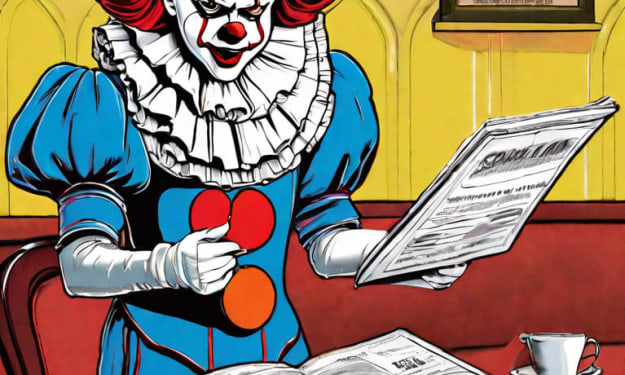Aguirre, the Wrath of God - Werner Herzog (1973)
Movie Review

"Aguirre, the Wrath of God" is the common point of three distinct creations: Werner Herzog's vision, Klaus Kinski's interpretation, and Florian Fricke's music, all of which quickly and effortlessly reach the pinnacle in a perfect blend, protected by a pioneering directorial attitude. Each one tells their own story with the means at their disposal, and all the narratives are subsequently overlaid, to the detriment of the other dimensions of the film, where the script is vague, the dialogues sparse and laconic, and the narrative construction quasi-absent.
Few people know that the undeniable success of this wonderful achievement also belongs, equally, to the rock band (a precursor of the space music genre) Popol Vuh, whose sound full of mystical and introspective connotations fascinated Herzog to such an extent that no less than seven of his most important works owe their soundtrack to them (Aguirre, the Wrath of God, Nosferatu, Fitzcarraldo, Cobra Verde, Heart of Glass, and The Enigma of Kaspar Hauser). The heart of the group, Florian Fricke, a musician with a strong inclination towards experimentation, is largely responsible for the overwhelming effect of the film's opening scene, where an unusual instrument called "choir-organ" (a variant of a mellotron) was used, running pre-recorded vocal loops in various tonalities, mixed through a synthesizer-like keyboard instrument.
But that's not all. Herzog's symbiotic relationship with actor Klaus Kinski, the result of a premonitory type of conservatism pushed to the extreme (because when he sees Kinski on stage for the first time, the director has a revelation that he would later recalls: "At that moment I knew it was my destiny to make films, and his to act in them."), places the communication between the two on an inaccessible level compared to usual approaches. Faithful to Kinski's talent, strength, and expressiveness in his performance, but also relying heavily on his physical appearance (alienated and progressively deteriorating), Herzog hardly interferes in his work... and rightly so. However, he is intensely concerned with his own work, which consumes him exhaustively. He chose to shoot the film in the Amazon rainforest, under conditions similar to those in the plot, with all the risks (not few) assumed. The film crew literally cut their way through the tangle of vines with machetes, floated on rudimentary boats built by local tribes, through tumultuous waters (using the rafts that can be seen in the film), and exposed themselves to dangers of illness, hunger, or poisoning through direct interaction with various poisonous plants, insects, and reptiles.
Werner Herzog's film adaptations, especially "Aguirre, the Wrath of God", share a common element of creating a particular interior disposition and a specific state, likely stemming from Herzog's extensive experience directing opera performances. These films have a common theme of individuals haunted by the vision of a grand achievement, who succumb to the sin of pride in daring to pursue their goal, only to be ultimately crushed by an unforgiving universe.
The production is about the power of faith, speaking of dedication and selflessness, of the power to pursue an ideal. Aguirre is the second-in-command officer of a group of soldiers/explorers of the New World (40 in total), sent by Gonzalo Pizarro (brother of Francisco Pizarro) to descend the river on a reconnaissance and prospecting mission. The order requires them to return by a deadline (7 days) to avoid being abandoned, and the search is aimed at the lost city of El Dorado, the obsessive dream of any conquistador. Tragic events occur, the mission fails, and Aguirre, the last survivor, becomes total prey to a psychotic delirium that denies him the reality. A character that fits Kinski like a glove... a conflict seemingly dedicated to Herzog... the most conducive environment for Fricke's fantasies.
Even so, from all three prominent directions, in "Aguirre, the Wrath of God", each one's participation is at the lowest limit of discretion... In the economy of the soundtrack, the total contribution signed by Florian Fricke is almost equal in minutes to the participation of the flutist (a local handicapped person recruited by Herzog); Kinski proposes an introverted character in which the most important transformations and evolutions are not externalized, but only intensely lived; and in "on-set impositions", Werner has few and simple cosmetic changes.
The subtle parallel between Aguirre and Richard III (as seen by Shakespeare) is evident (Kinski even underwent special training to walk in a certain way), but it escaped critics, although it explains a less visible detail on screen, that the Spanish group of fighters still has to find the city of gold... meaning they are subjected to an extreme temptation (similar to Richard's attempt to save the Plantagenet dynasty). Their target is worth more than all of Spain... Almost as much as the whole of Europe, and (in their minds) they are only days away from it; already during the journey, the rebels unilaterally claimed for themselves and their administration an area four times larger than the country they came from. Similarly, the grandiosity madness that accompanies the final moments of both interpretations (Aguirre/Richard), evolving in a different universe, seals the story in a highly refined manner.
Werner Herzog's film adaptations, especially the film "Aguirre, the Wrath of God", have a common denominator of creating a specific interior disposition and a unique state, likely influenced by Herzog's extensive experience in directing opera performances. These films share a common theme of individuals who are haunted by the vision of a grand achievement but succumb to the sin of pride in daring to pursue their goals, only to be ultimately crushed by an unforgiving universe.
About the Creator
Andreea Sorm
Revolutionary spirit. AI contributor. Badass Engineer. Struggling millennial. Post-modern feminist.
YouTube - Chiarra AI






Comments
There are no comments for this story
Be the first to respond and start the conversation.